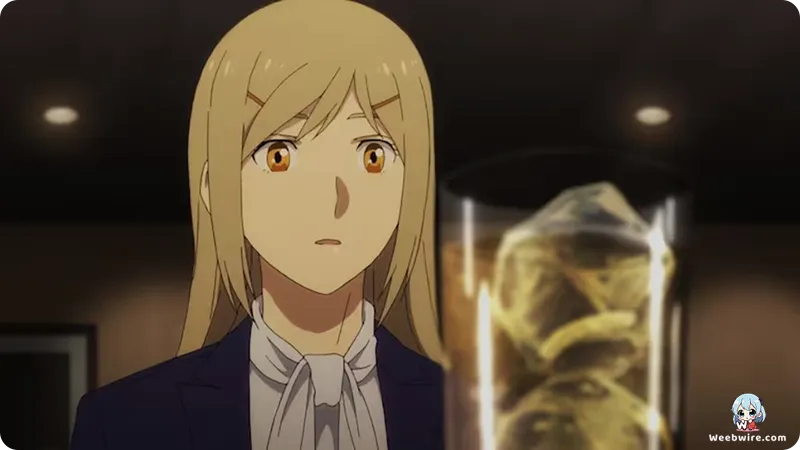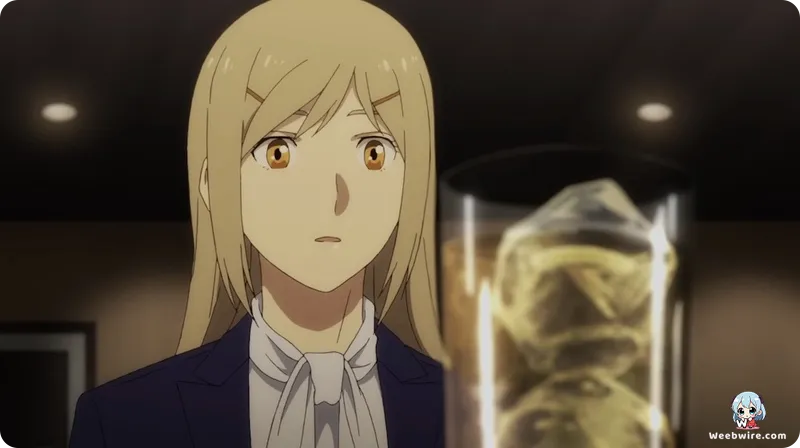Beyond the Drink: How *BARTENDER Glass of God* Became an Essential Textbook for Global Mixology

While much of the anime landscape is dominated by high-octane action or elaborate fantasy settings, BARTENDER Glass of God distinguishes itself by offering a refined, deeply informative, and surprisingly educational exploration into the refined craft of high-end mixology. Far from mere entertainment, this series centering on the exceptionally gifted bartender Ryū Sasakura at his elusive bar, Eden Hall, serves as a comprehensive masterclass in cocktail history, psychological insight, and preparation technique.
The enduring appeal of BARTENDER Glass of God stems from the profound level of historical context and intricate trivia woven into every narrative, elevating each episode into a fascinating lesson on the artistry of liquid creation. What truly captivates enthusiasts and industry professionals alike is the franchise's unwavering dedication to technical accuracy. The featured cocktails are not invented props; they are meticulously researched classics, historical deep cuts, and authentic recipes.
When Sasakura prepares an iconic drink like the Martini, the series meticulously details the historical controversies surrounding its perfect execution, such as the classic shaken versus stirred debate, the precise vermouth ratio, and the symbolic weight attached to the beverage. This stringent commitment to factual representation has earned the series widespread critical acclaim, often labeling it the most accurate fictional depiction of the profession.
Functioning essentially as a visual reference guide, BARTENDER has become essential viewing for aspiring mixologists globally, revealing lesser-known facts about beloved drinks, such as the origins of the Sidecar being tied to a restorative necessity for a World War I officer, or uncovering the complex geopolitical narratives behind specific spirits.
The Psychological Dimension of the "Glass of God"
Crucially, the series operates on a profound philosophical axis: the concept of the Glass of God. This is not a specific cocktail recipe, but rather the perfect libation delivered at the exact right psychological moment for the individual patron. Ryū Sasakura's genius transcends technical proficiency; his true skill lies in his uncanny ability to decipher the emotional state and existential dilemmas of his customers. He acts less like a server and more like a confessor or empathetic counselor.
The cocktail he chooses serves as a potent metaphor, reflecting the customer's inner turmoil or guiding them toward resolution. This crucial psychological dimension often surprises viewers expecting a standard food or drink anime, ensuring every selection is rooted in deep character analysis and providing fertile ground for fan discussion regarding the symbolic meaning of each measure poured.
Adding to its mystique is the setting of Eden Hall itself. The bar is consistently portrayed as an almost mythical, difficult-to-locate sanctuary. Customers do not stumble upon it via casual browsing; they find it only when they stand at a critical juncture in life, guided by an intangible, urgent need for counsel. This anonymity amplifies Ryū's legendary standing. He operates outside the conventional framework of commerce, existing purely to dispense his unique brand of liquid wisdom. This element of magical realism elevates the series, suggesting Eden Hall functions as a timeless refuge where societal pressures dissipate, leaving only the raw, emotional truth of the individual customer.

The legacy of the original manga, penned by Joh Araki and illustrated by Kenji Nagatomo, is robust, leading to the highly anticipated 2024 adaptation, BARTENDER Glass of God, produced by Studio Liber. Successfully adapting a narrative driven by subtle dialogue and intimate atmosphere required Studio Liber to focus intensely on mood, employing soft, meticulous lighting and detailed character work to capture the delicate emotional exchanges within Eden Hall. The drama often resides in the silent introspection between sips, making high-fidelity animation essential for conveying the patrons' internal struggles. This adaptation successfully maintains the quiet dignity and educational rigor that cemented the source material as a cultural touchstone.
The real-world impact is undeniable: the franchise is widely credited with sparking a cultural resurgence of interest in classic cocktail culture, redefining bartending as a highly respected art form that demands not just skill, but historical knowledge and profound emotional intelligence.
Credits
BARTENDER Glass of God
Author
Joh Araki (Story) and Kenji Nagatomo (Art)
Cover Art
Kenji Nagatomo
Studio
Liber
Publisher
Shueisha
Producers





